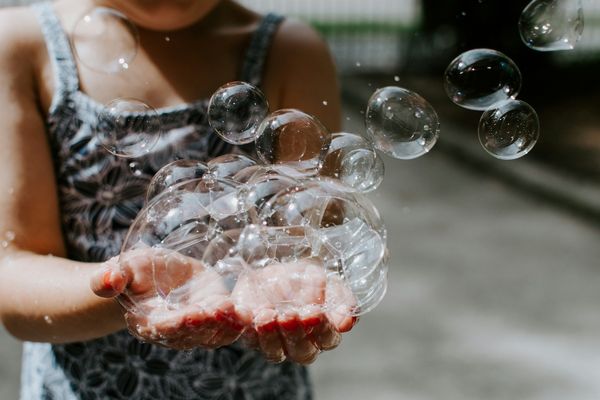
Who washes their hands?
Every few months, we see someone in culture who unabashedly talks about not washing well, whether it's a celebrity discussing their griminess, or a random person on social media who inadvertently reveals their poor ablutionary proclivities. Sometimes it’s about their own hygiene, how they don’t wash their hands, or maybe their legs or feet. Sometimes it’s about how they let their children be dirty. Occasionally it’s a social media influencer with an entire theory around cleanliness that doesn’t involve, you know, actually taking baths or showers. They've got it all figured out.
It happens so frequently that I have started writing this piece regularly for years, but always hold off on actually publishing it — because it’s so incessant that I never want to seem like I'm talking about the latest instance of Dirty Person Revealed. And every time, the conversation goes the same way, with the same unproductive result. Those of us in communities that have historically been marginalized are aghast at the profound lack of hygiene that these folks are practicing, and just as put off by the fact that they brag about it. That’s usually followed by us talking about how our mothers would never let us be unclean, and certainly wouldn’t let us tell strangers about it if we were.
What Clean Means
But there’s something deeper happening here. First, I honestly am not that troubled by the fact that social norms differ around people's daily rituals for hygiene. I’ve known folks who were on lengthy hikes or travel excursions where they didn’t bathe for weeks because they simply couldn’t, or it wasn't practical. Similarly, I’ve known people who grew up without water security, and as a result had wildly different expectations about access to, and use of, clean water. I certainly don't judge people without access. And, in most of those cases, they still found ways to stay as clean as they could within their context; there are usually lots of folk traditions that enable surprisingly effective methods of hygiene even if the methods are unfamiliar in a lot of contemporary contexts.
Beyond that, I’m not even really troubled by clichéd stories of how the French bathe less, or that there were cultures where people wore cologne or perfume instead of washing. It is not surprising that different cultures would have different standards around these things. The more significant question is: Who gets to be unclean?
For those of us in marginalized communities, especially people of color in the west, one of the very first descriptors used by white supremacists when they want to demean or dismiss us is to describe us as “dirty”. Within South Asian communities, despite the reality that there are extensive, and culturally impactful, norms around ritualized cleansing and washing, white supremacists will very often have their very tactic be talking about how we smell or are dirty when justifying their attacks or violence against us. This, despite the existence of entire revolting communities of manosphere dudes telling on themselves about how their insecurities are keeping them from properly washing.
By contrast, dominant cultures see their performance of dirtiness as “real” or even “pure”. Hippies on a commune, or fans at a festival, or mountain men being out in the wilderness together while bragging about how filthy they are, are seen as being closer to the earth, or more in touch with nature. A lack of cleanliness signifies authenticity and connectedness. These days, when celebs talk about their unwillingness to wash their hands, they evoke themes of pseudo-science and conspiracism that also fuel the dangerous anti-vax movement, by presenting lack of personal care or health maintenance as some virtuous abstention. Unwashed hands sit beside unpasteurized milk and uninspected meats.
Our communities, by contrast, have entire complex social traditions around staying clean. The endless washcloth conversations on Twitter (back when it was still Twitter), accompanied by the discourse around staying moisturized, along with mentions of how often people would change clothes, or even recitations of elaborate relaxing bath rituals — all of these reify the importance of staying clean in so many of our communities, both as assertions of our norms, but also in anticipatory response to the lies of white supremacy. We're steeling ourselves for the very first insult so often being to call us dirty or smelly, the lie be damned.
But let me tell you, there is joy in being clean! There was a flash of recognition for me, seeing the common threads between our communities, when I heard Patti LaBelle talking about hanging out with Prince back in the 90s.
"He had changed his clothes again. He changes his clothes six times a day! I'm not lying. And every time he's clean — cleaner than the last time. With his pumps to match. I said, 'God, I'm scared of you!'"
Patti means clean both literally and figuratively, and it spoke to me.
So, the discussions that pop up regularly, in media and in conversation, about people’s bathing rituals are really about who gets to be “clean”. It’s a visceral, personal concern for so many of us, and the casual privilege of those who get to flaunt their dirtiness is a stark reminder of how dehumanizing narratives are always built on lies.
The next time everyone is pretending to be shocked about who doesn't use soap and who doesn't wash their feet, you can just opt out of the cycle; we know what we're really talking about here. And we can wash our hands of the whole conversation.